Defence Minister Rajnath Singh on Monday said that the issue of Pakistan-occupied Kashmir (PoK) should have been decided during the 1971 war between India and the neighbouring country.
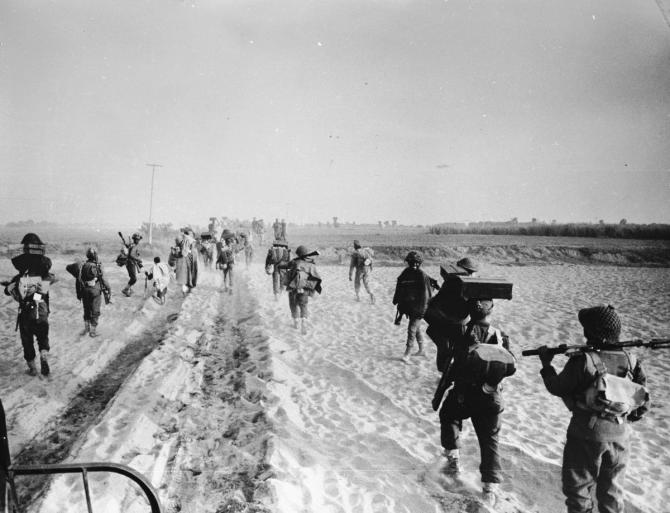
The defence minister said this while addressing a function to honour martyrs' families at Badoli in Kangra district of Himachal Pradesh.
"We have recently marked the Golden Jubilee of victory of 1971 war. The 1971 war will be remembered in the history as the war fought for the humanity instead of property, possession or power," Singh said.
"There is only one regret. The decision on PoK should have been taken at that time itself," he said.
Singh also attended a similar function at Nadaun in Hamirpur district.
In Kangra, Singh also shed light on the Centre's unwavering resolve to make the country 'Aatmanirbhar' and the progress achieved due to the measures taken to realise the Prime Minister Narendra Modi's vision.
"Earlier, India was known as a defence importer. Today, it is among one of the top 25 defence exporters in the world. From about Rs 900 crore eight years ago, defence exports have crossed Rs 13,000 crore. We are hopeful that the defence exports will touch Rs 35,000 crore by 2025 and the target of Rs 2.7 lakh crore set for 2047 will be met,” he said.
While maintaining that India has never attacked any country, nor has it captured an inch of foreign land, he assured the nation that if any attempt is ever made to disturb the harmony in India, a befitting reply will be given.
"India is a peace-loving country, but it should not be mistaken with being coward or afraid of war. At a time when we were dealing with Covid-19, we had to face the tension on the northern border with China. The courage of our soldiers during the Galwan incident proved that no matter how big the power is, India will never bow down,” he said.
Singh said that the formation of the post of 'chief of defence staff' and setting up of the department of military affairs are some of the major reforms taken to bolster the national security.
"Doors of National Defence Academy (NDA) have been opened for girls, while women in the Armed Forces are being given permanent commission. We have also allowed deployment of women on warships,” he said.
Singh stressed that the government is building a 'New India', which will give a sense of security and trust to all our peace-loving friendly countries and those with evil intentions will get nothing but dust.
On the 2016 surgical strikes and 2019 Balakot air strikes, the defence minister stated that India's new strategy against terrorism has broken the backs of those who try to hurt the unity and integrity of the nation.
”Terror activities were carried out from Pakistan under a well-thought-out policy. After the Uri and Pulwama attacks, our government and the Armed Forces, through the 2016 surgical strikes and 2019 Balakot air strikes, displayed to the world India's unwavering commitment to root out terrorism. We showed that our forces have the capability to act on this side and, if needed, on the other side of the border. India's image has been transformed. It is now seriously listened to on international platforms,” he said.
The defence minister was of the view that the inspiration taken from the heroes of the Armed Forces is the reason behind India moving swiftly forward on the path of development.
”When the dark clouds of war appear and national interests are attacked, it is the soldiers who bear that attack and protect the country. It is the supreme sacrifice of the fallen heroes which keeps the people alive,” he stated.
”The names of General Sam Manekshaw, General Jagjit Singh Arora, General Jacob, General Sujan Singh Uban and General Officer in Command Air Marshal Latif, who led India to a resounding victory, will never be forgotten. Indian soldiers in the war included Hindus, Muslims, Parsis, Sikhs and one Jew. It is proof of India's belief towards Sarvadharma Sambhav (respect for all religions). All these brave soldiers belonged to different states with different mother tongues. They were bound by a strong and common thread of Indianness,” he said.
Singh termed Himachal Pradesh as a border state strategically important for India and the people residing in the border areas as strategic assets. While emphasising that it is the responsibility of every government to make their lives better, he stated strengthening the border infrastructure as well as the intelligence and communication capability of the country has been accorded top priority by the government, led by Prime Minister Modi.
He pointed out that hundreds of kms of roads, bridges and tunnels have been constructed in the border areas, with Atal tunnel in Himachal Pradesh being one of the mega projects.
Singh paid respects to the families of the war heroes, stating that the country will forever be indebted to the sacrifices made by the valiant soldiers.
He said the armed forces will always be a source of inspiration to the people, especially the youth, as they possess the traits of discipline, devotion to duty, patriotism and sacrifice, and are a symbol of national pride and trust.
”Background, religion and creed don't matter, what matters is that our beloved tri-colour continues to fly high,” he said.
The defence minister paid glowing tributes to the war heroes, including first recipient of Param Vir Chakra Major Somnath Sharma (1947); Brigadier Sher Jung Thapa, Maha Vir Chakra (1948); Lt Col Dhan Singh Thapa, PVC (1962); Captain Vikram Batra, PVC (1999) and Subedar Major Sanjay Kumar, PVC (1999).
On this occasion, Singh felicitated the families of the brave soldiers of the armed forces hailing from Himachal Pradesh, who laid down their lives in the service of the nation.
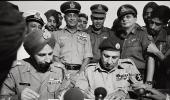
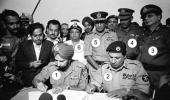
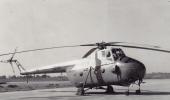

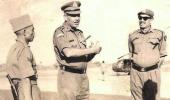






 © 2025
© 2025